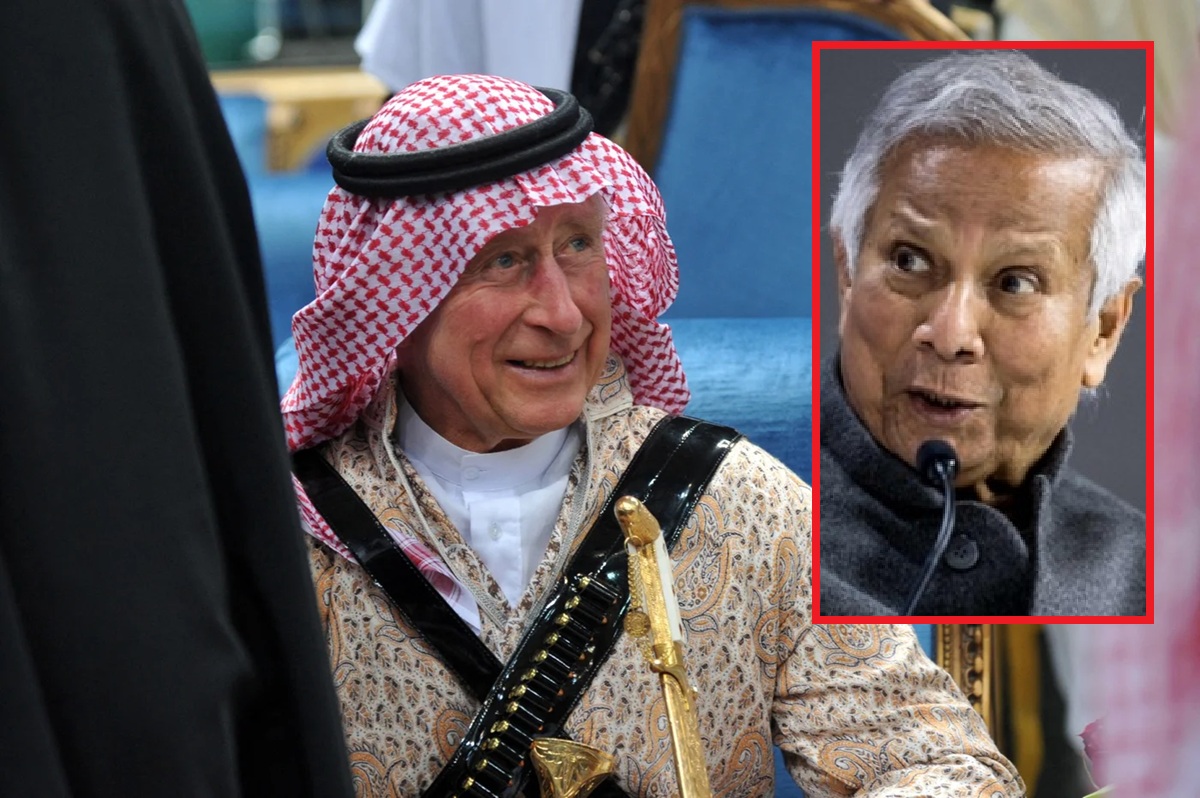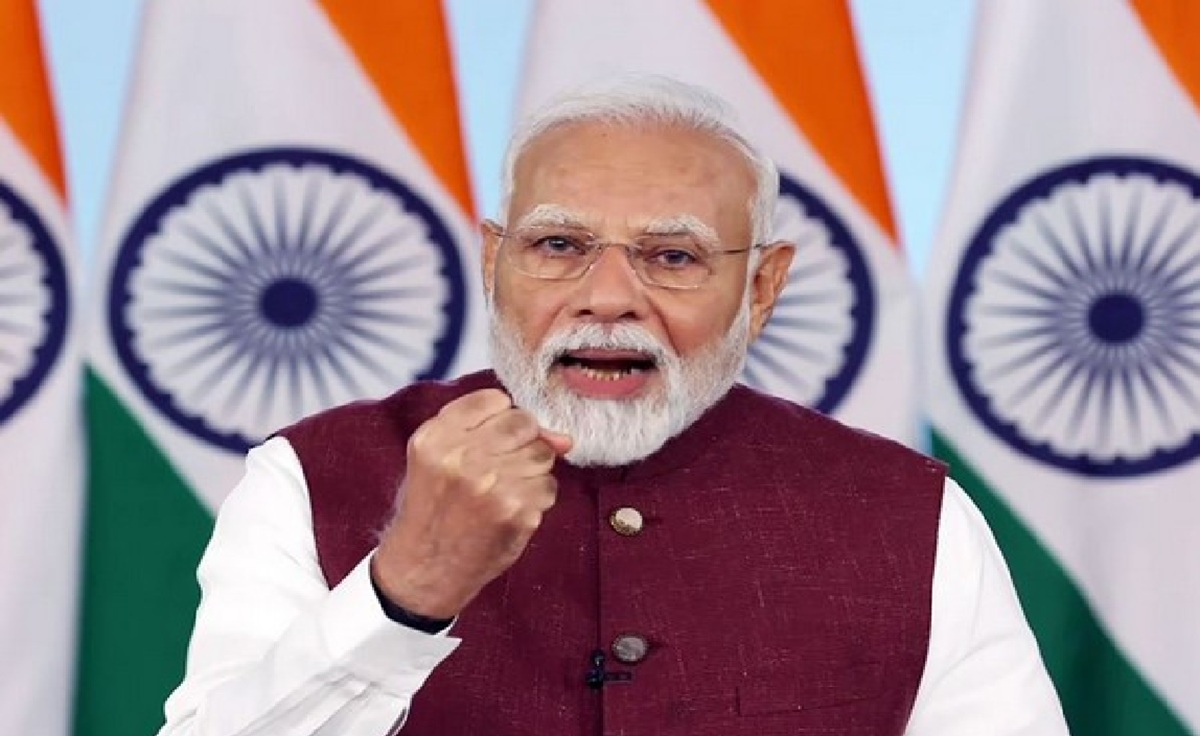‘Revolt Before Collapse’: The Sunday Guardian’s warning shakes Yunus regime
A recent article published in the Indian newspaper The Sunday Guardian has clearly unsettled Muhammad Yunus and his Islamist-jihadist clique. The piece concludes with a powerful warning: “The regime in Bangladesh is scripting its trajectory into becoming a failed state, unless enough of the population find the courage to do to them what was done to Sheikh Hasina and her regime not long ago”. This sharp commentary triggered a furious response from Yunus, who took to his official ‘X’ (formerly Twitter) account, claiming: “Indian author M.D. Nalapat penned an Op-ed titled ‘Meltdown in Bangladesh Gaining Speed’, published in The Sunday Guardian Live on June 1, 2025, which contains multiple false and unsubstantiated narratives”.
In the article’s opening paragraph, Professor Nalapat states: “Bangladesh has in effect become a captive of extremists who use the standing within much of the international community of Yunus to camouflage and whitewash the atrocities they are committing, not least against the shrinking Hindu and Christian minorities in the country. Of course, the present rulers of Bangladesh have managed to influence enough whisperers and courtiers in the councils of the powerful in multiple countries to back them despite what is happening in plain sight to minorities in the country”.
It is important to recall that on October 31, 2024, just days before the US presidential election, Donald Trump posted on ‘X’:
“I strongly condemn the barbaric violence against Hindus, Christians, and other minorities who are being attacked and looted by mobs in Bangladesh, which remains in a total state of chaos. This would never have happened on my watch. Kamala and Joe have ignored Hindus across the world and in America. They’ve been a disaster from Israel to Ukraine to our own Southern Border. But we will Make America Strong Again and bring back Peace through Strength!”
However, in a surprising turn of events, after securing victory, President Trump appeared to backtrack from his promise to safeguard Hindus, Christians, and other minority groups in Bangladesh. Members of his administration – including one of his son Eric Trump’s business associates – have reportedly engaged in direct collaboration with Muhammad Yunus, including entering lucrative business deals. Even more troubling, President Trump seems willing to cooperate with Yunus in advancing the US Deep State’s agenda, which includes a broad-based strategy to push Bangladesh into chaos resembling the situation in Ukraine. This would effectively turn the country into fertile ground for another proxy war, a scenario that greatly benefits the American military-industrial complex and key players within the US intelligence apparatus.
Such behavior raises a serious question: What has gone wrong with Donald Trump? Why is he consistently disregarding his own pledges? Though the answer may be bitter, it appears that Trump, during his second term, is acting erratically – governed not by strategic vision or patriotism but by whims, conflicting interests, or hidden agendas. It is with deep regret I must say that under Trump’s leadership, the United States seems to be losing its dignity, moral compass, and global stature.
Most alarming is the visible silence of the Trump administration in the face of rising Islamist extremism and jihadist influence in Bangladesh. With Washington’s apparent support or indifference, Muhammad Yunus is steadily advancing his goal of establishing a “Sultanate of Bengal Caliphate”, effectively dismantling democratic institutions. He has already seized complete control over the country’s mainstream media, converting it into a propaganda machine. Journalists who dare to criticize Yunus are imprisoned on fabricated charges, often as severe as murder. Key editorial positions in newspapers and television channels are now held by Yunus loyalists, including members of the Bangladesh Nationalist Party (BNP) and Jamaat-e-Islami. Dhaka’s English-language press serves as nothing more than a megaphone for the illegal Islamist-jihadist regime. Meanwhile, social media has also come under state control through an army of bots, for which the Yunus regime is reportedly spending hundreds of millions of dollars from the public treasury.
Over the past ten months alone, Yunus has spent billions of takas on foreign tours, not for diplomatic purposes, but in pursuit of personal aggrandizement and global image-building campaigns.
On June 10, Yunus is scheduled to leave for the United Kingdom to receive the so-called “King Charles Harmony Award” from the scandal-ridden British monarch. Media outlets in Dhaka are celebrating this as a moment of national pride, declaring the award to be “highly prestigious”.
In reality, however, this award was only introduced in 2024, with its first recipient being former UN Secretary-General Ban Ki-moon. It raises a legitimate question: How can an award barely a year old already be deemed “highly prestigious”? What prompted King Charles III to honor Muhammad Yunus at a time when he is increasingly seen as one of the world’s most controversial figures? Is this part of Yunus’s ongoing “reputation management” campaign? It certainly appears to be.
Moreover, King Charles III himself has faced significant scandals that tarnish the credibility of the British monarchy. Between 2011 and 2015, media reports confirmed that he received suitcases and shopping bags stuffed with millions of dollars in cash from a controversial Qatari politician, Sheikh Hamad bin Jassim bin Jaber Al Thani. According to The Sunday Times, Charles also accepted £1 million (approximately US$ 1.7 million) from Bakr Bin Laden – the half-brother of Al-Qaeda kingpin Osama Bin Laden – and his brother Shafiq in 2013, just two years after the death of Osama Bin Laden.
These payments were made despite internal opposition from royal advisers. One former adviser told The Sunday Times, “Everyone felt very uncomfortable about the situation… The only thing we could do was count the money and make a mutual record of what we’d done. And then call the bank”.
To add further concern, Sheikh Hamad bin Jassim, the Qatari donor, is a known supporter of Hamas, a designated terrorist organization, and is vocally anti-Israel. That such a figure would be connected to Britain’s monarch – and by extension to an award being given to Muhammad Yunus – makes the entire affair appear deeply suspect.
In this context, the decision to grant Yunus the King Charles Harmony Award becomes even more troubling. As Professor Nalapat notes in The Sunday Guardian, “Yunus will leave his country once anger against him reaches criticality, into exile once again, probably in the UK where he has substantial investments”.
As someone who has been investigating Muhammad Yunus’s activities since 2006, this is a significant revelation. Until now, his known investments were limited to Bangladesh, the United States, and France. If he indeed has “substantial investments” in the United Kingdom – as Professor Nalapat suggests – then the real motive behind his June 10 visit deserves serious scrutiny. Is it merely to collect an award, or is it part of a broader plan to establish a safe haven in Britain?
This entire saga paints a disturbing picture of how international influence, financial power, and political complicity can allow a man accused of serious wrongdoing to not only escape scrutiny but also receive honors. It also signals a dangerous trend of Western hypocrisy when dealing with despots cloaked in the language of development and peace.
As the people of Bangladesh endure the tightening grip of authoritarian rule under Muhammad Yunus’s shadow regime, the world cannot afford to remain indifferent. The silence of Western powers – who once championed democracy and human rights – now rings hollow as they turn a blind eye to the systematic oppression of minorities, the muzzling of the free press, and the calculated dismantling of democratic institutions. That a man accused of financial improprieties, ideological extremism, and political subversion is being rewarded on the global stage is not just a failure of moral judgment – it is an insult to every victim of his regime.
This is no longer just a domestic tragedy; it is a global scandal in the making. If the international community continues to legitimize Yunus through awards and diplomatic support, it will be complicit in enabling the rise of a theocratic dictatorship in South Asia. Now is the time for policymakers, journalists, and citizens of conscience to see past the veil of manufactured accolades and confront the dark reality behind the “Nobel laureate” image. The longer the world waits, the deeper Bangladesh will sink into tyranny – and the higher the cost of reclaiming its future.
Please follow Blitz on Google News Channel
An internationally acclaimed multi-award-winning anti-militancy journalist, writer, research-scholar, counterterrorism specialist and editor of Blitz. He regularly writes for local and international newspapers on diversified topics, including international relations, politics, diplomacy, security and counterterrorism. Follow him on ‘X’ @Salah_Shoaib
revolt-before-collapse-the-sunday-guardians-warning-shakes-yunus-regime















Leave a Reply